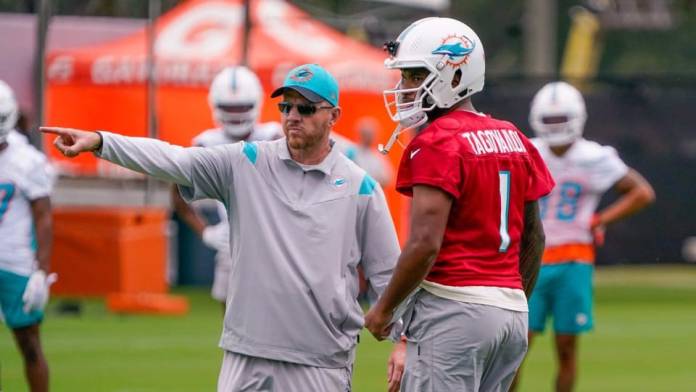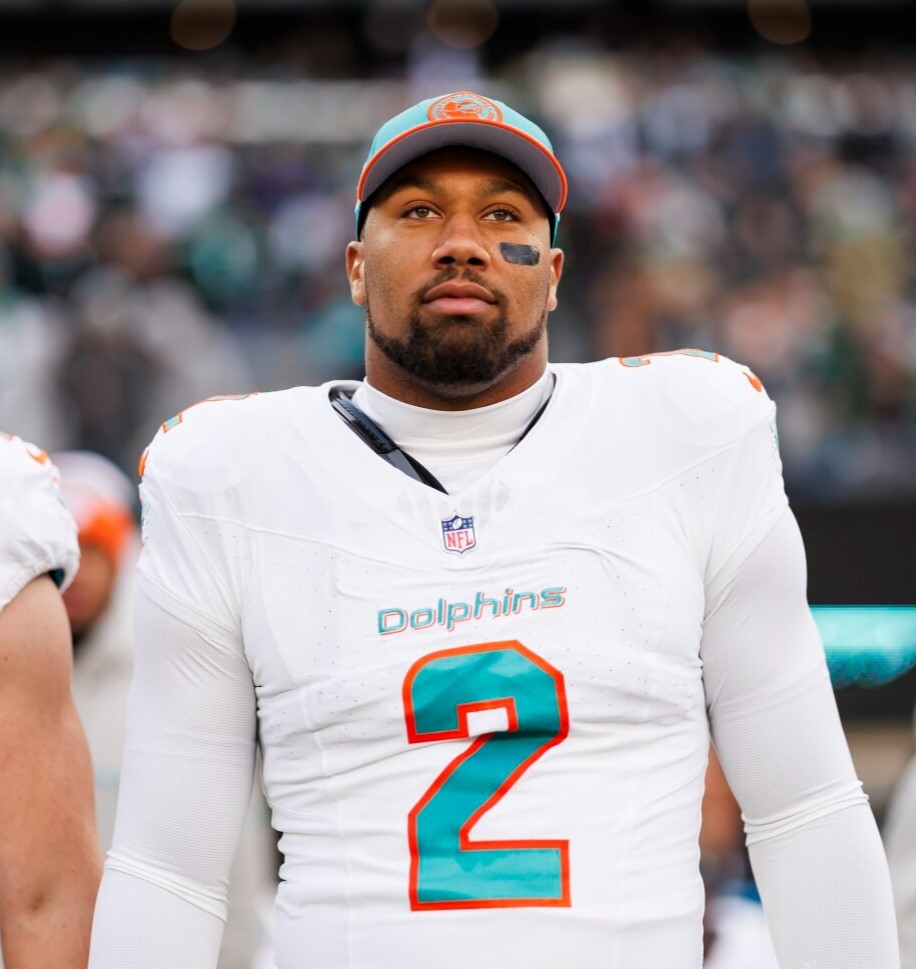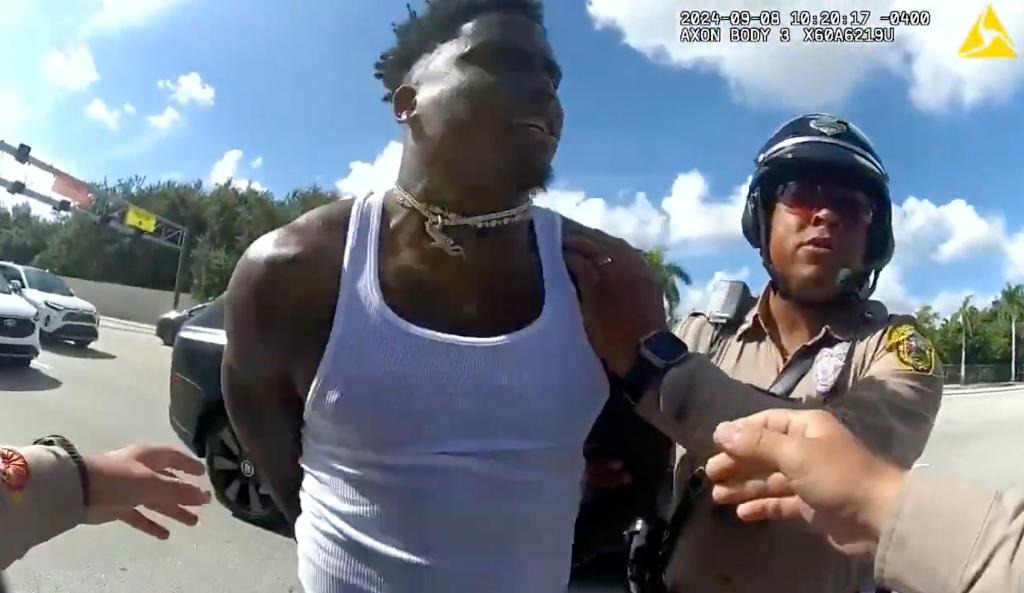**Dolphins’ Hesitation Over Tua Tagovailoa’s Contract Draws Criticism from Chad “Ochocinco” Johnson**
In the swirling vortex of NFL contract discussions, the ongoing negotiations—or lack thereof—between the Miami Dolphins and quarterback Tua Tagovailoa are sparking a flurry of questions and criticisms. Among the voices raising concerns is former NFL player Chad “Ochocinco” Johnson, who once donned the Dolphins jersey himself back in 2012.
During his appearance on a recent podcast, Johnson drew comparisons between the Dolphins’ handling of Tagovailoa’s contract and the Detroit Lions’ approach with Jared Goff, suggesting that Miami’s reluctance to finalize a deal echoes a broader uncertainty about Tagovailoa’s future with the team. Pointing to the Lions’ commitment to Goff, Johnson criticized Dolphins General Manager Chris Grier for what he perceives as unnecessary delays.
“The message [the Dolphins] are sending to Tua by making him wait for a contract extension is perplexing,” Johnson remarked, according to [@NightcapShow_]. “The Lions didn’t hesitate with Goff because they see him as their future. What’s the holdup in Miami?”
Inside sources suggest the Dolphins aim to secure Tagovailoa’s signature in the near future, yet as each day passes, the question of “Why the wait?” becomes more pronounced. With Grier’s history of prolonged negotiations, such as the delay in picking up Tagovailoa’s fifth-year option in 2023, the pattern of hesitation seems to be a recurring strategy.
Comparing Grier’s swift actions in securing deals for players like Bradley Chubb and Austin Jackson to the slow progress with Tagovailoa, critics argue that this dawdling could end up costing the team more in the long run. Johnson, echoing the sentiments of many, highlighted the discrepancy in urgency, questioning the message being sent to the promising quarterback.
As the NFL sees other key quarterbacks like Dallas’s Dak Prescott and Green Bay’s Jordan Love potentially nearing their own extensions, Tagovailoa’s market value could inflate, putting the Dolphins in a precarious position to either pay more or lose leverage in negotiations. This unfolding scenario underscores a tension within the Dolphins’ front office: is Tagovailoa unequivocally viewed as the franchise’s future, or does their negotiation strategy suggest otherwise?
Johnson’s critique sheds light on an issue that not only impacts Tagovailoa and the Dolphins but also serves as a commentary on the broader dynamics of NFL contract negotiations. As the debate rages on, all eyes remain fixated on Miami’s next move regarding their quarterback’s future.




